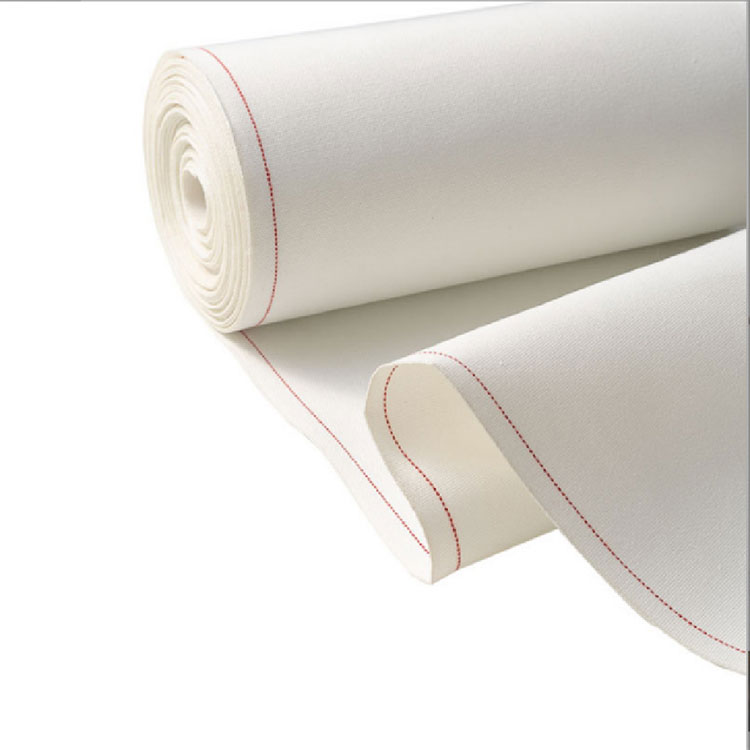Why choose Filter Cloth ?
2025-09-02
In today’s highly competitive industrial landscape, efficient solid-liquid separation plays a crucial role in achieving optimal productivity and minimizing operational costs. Filter cloth is one of the most essential components in various industrial filtration processes, used extensively in industries such as mining, chemical processing, pharmaceuticals, wastewater treatment, food and beverage, and metallurgy. Selecting the right filter cloth directly impacts the efficiency, quality, and cost-effectiveness of your filtration system.
What Is Filter Cloth and Why It Matters
Filter cloth is a specially engineered fabric designed to separate solids from liquids during industrial filtration. It is installed in filter presses, vacuum filters, rotary drum filters, and other solid-liquid separation equipment. The cloth acts as a medium where liquid passes through while trapping solid particles, ensuring high filtration efficiency and maintaining consistent product quality.
The importance of selecting the right filter cloth cannot be overstated. Using an unsuitable fabric can lead to slower filtration rates, frequent clogging, poor solid retention, increased maintenance costs, and even damage to downstream processes.
Types of Filter Cloth Materials
Different materials are used depending on the chemical, thermal, and mechanical requirements of the filtration process. The most common include:
-
Polypropylene (PP): Highly resistant to acids and alkalis, lightweight, and cost-effective; ideal for chemical and food industries.
-
Polyester (PET): Offers excellent abrasion resistance and can withstand higher temperatures; commonly used in mining, dyeing, and wastewater applications.
-
Nylon (PA): Strong and durable with good elasticity, suitable for handling abrasive particles.
-
Cotton: Eco-friendly and cost-efficient, but limited to low-temperature and neutral-pH applications.
-
PTFE (Teflon): Extremely resistant to chemicals and high temperatures; used in specialized industries requiring superior durability.
By understanding your process requirements, selecting the right material ensures improved performance, longevity, and lower operational costs.
Key Product Specifications and Performance Parameters
When choosing filter cloth, you must evaluate multiple technical parameters to match your specific application needs. Below is a summary of our filter cloth specifications for industrial use:
| Specification | Available Options | Description |
|---|---|---|
| Material | PP, PET, Nylon, Cotton, PTFE | Select based on chemical and thermal resistance |
| Weave Type | Plain, Twill, Satin | Affects permeability, cake release, and durability |
| Micron Rating | 1 µm – 200 µm | Determines particle retention capability |
| Weight | 200 GSM – 1200 GSM | Heavier fabrics support higher-pressure filtration |
| Air Permeability | 1 – 800 L/m²/s | Influences filtration speed and efficiency |
| Operating Temp. | -20°C to 250°C | Choose according to process environment |
| Chemical Resistance | High / Medium / Low | Depends on fabric composition and coating |
| Custom Sizes | Yes | Tailored to fit specific equipment |
These specifications ensure you select a filter cloth that meets your system’s demands while optimizing filtration performance and reducing downtime.
How to Choose the Right Filter Cloth for Your Application
Selecting the ideal filter cloth involves evaluating several factors to achieve the perfect balance between filtration efficiency, durability, and cost-effectiveness.
Analyze Filtration Goals
Identify your process objectives — whether you need maximum clarity, high throughput, or reduced moisture content in filter cakes. For instance, food-grade processes demand extremely fine filtration, whereas mining operations prioritize faster flow rates.
Understand Particle Characteristics
Particle size, shape, and abrasiveness directly influence fabric selection. Smaller particles require finer micron ratings, while highly abrasive solids demand durable weaves like twill or multi-filament designs.
Evaluate Chemical Compatibility
Check your slurry composition and ensure the material resists any potential chemical corrosion. For highly acidic or alkaline environments, polypropylene or PTFE are ideal choices.
Consider Operating Conditions
Temperature, pressure, and pH levels impact filter cloth lifespan and performance. High-temperature environments require polyester or PTFE, while low-temperature, neutral-pH applications can use cotton or nylon.
Optimize Weave and Finish
The weave pattern affects particle retention, flow rate, and cake release:
-
Plain Weave: Fine retention, best for precise filtration.
-
Twill Weave: Greater durability, suited for abrasive solids.
-
Satin Weave: Smooth surface for easy cake release.
Benefits of High-Quality Filter Cloth
Investing in premium filter cloth enhances operational efficiency and reduces long-term costs. Key advantages include:
-
Higher Filtration Efficiency: Captures finer particles and ensures cleaner filtrate.
-
Faster Processing: Improved permeability increases throughput.
-
Reduced Maintenance Costs: Longer-lasting fabrics lower replacement frequency.
-
Better Cake Release: Optimized finishes prevent clogging and simplify cleaning.
-
Customized Solutions: Tailored sizes and specifications to fit any filtration system.
By combining advanced material science with precision engineering, Star Machine delivers filter cloth solutions designed to outperform standard options in the market.
Filter Cloth FAQs
FAQ 1: How do I know which filter cloth is best for my process?
The ideal choice depends on your particle size, chemical environment, temperature, and flow rate. Start by analyzing your slurry properties and operational parameters. For chemical resistance, polypropylene or PTFE are excellent. For high abrasion, consider polyester with a twill weave. Consulting an expert ensures proper selection and optimal performance.
FAQ 2: How often should I replace my filter cloth?
Replacement frequency depends on factors like operating conditions, slurry composition, and maintenance practices. On average, filter cloth lasts 6 to 18 months, but using premium fabrics and proper cleaning can significantly extend its lifespan. Monitoring pressure differentials and inspecting for wear helps determine the right time to replace.
Enhance Filtration Efficiency with Star Machine
Selecting the right filter cloth is critical to improving filtration efficiency, extending equipment life, and reducing operational costs. By understanding your process requirements and choosing the right material, weave, and specifications, you ensure consistent performance and long-term reliability.
At Star Machine, we specialize in custom-engineered filter cloth solutions designed to meet diverse industrial needs. Our products are built with premium-grade materials, precision weaving, and advanced finishing techniques to deliver superior filtration performance.
Whether you operate in chemical processing, mining, wastewater treatment, food production, or pharmaceuticals, we provide tailored solutions to optimize your filtration system.
For professional consultation and high-quality filter cloth products, contact us today and discover how Star Machine can help elevate your industrial filtration performance.



